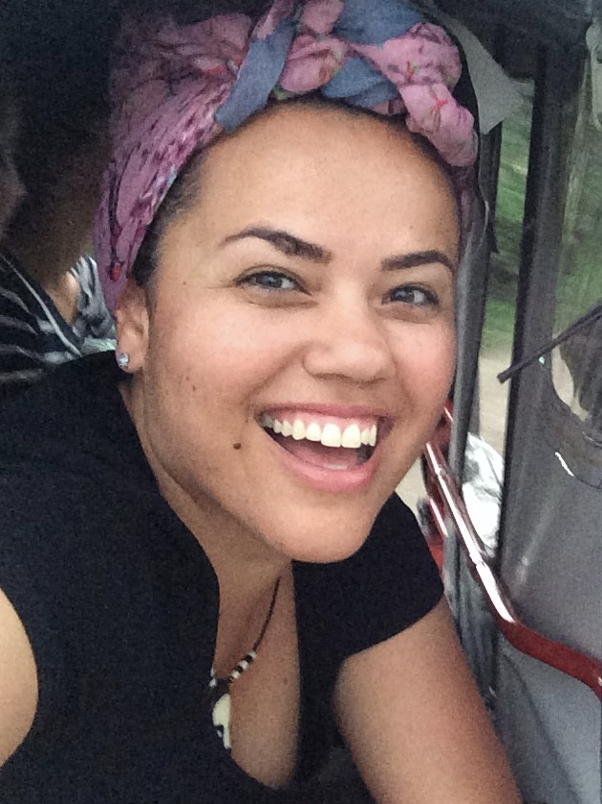We are delighted to welcome Dr Luciana Barbosa to our CeMore Team here at Lancaster as she joins the Sociology department as a climate change lecturer. We look forward to working with Dr Barbosa at CeMoRe and to engaging with her exciting research and interests! Welcome Dr Luciana Barbosa!
 In this blog post, Dr Barbosa introduces herself and her research interests in her own words.
In this blog post, Dr Barbosa introduces herself and her research interests in her own words.
“When I started my undergraduate studies at Universidade Federal de Minas Gerais (UFMG), I knew exactly where I wanted to go. I chose to study Geography because I have long been interested about the socio-spatial relationship and its inequalities. Driven by this passion, I became involved with GESTA (Grupo de Estudos em Temáticas Ambientais), an interdisciplinary research group dedicated to understanding the conflicts inherited to the various rationalities, discourses, and practices of territory appropriation in Brazilian society, particularly due to larger development projects such as dams and monoculture eucalyptus plantations being implemented and dramatically affecting traditional communities’ territories. Then, I got involved in advisory projects for people impacted by larger dams in semi-arid regions, while also working with communities of riverine, fishermen and peasants to develop social technologies based on agroecology and rainwater catchment for drinking water supply and small-scale production to ensure water, food and nutrition sovereignty and security.
After a few years, I began my MsC in International Relations, where I temporarily depart from the previous path to better understand the emerging discourses on climate change securitization and their implications for developing countries like Brazil.
After completing my master’s degree, I worked as a consultant for environmental non-governmental organizations and as the Governmental Affairs Manager at the Minas Gerais State Government’s Environmental Ombudsman. In 2015, I made the decision to follow my dream. So, after a long trajectory in activist research, advocacy, and community engagement with communities affected by large development projects, I began my PhD at Lancaster Environment Centre (LEC). At Lancaster University, I deepened my understanding of socioenvironmental issues by investigating how disaster urban policies for Rio de Janeiro’s informal settlements (favelas) and peripheral areas were used to support the largest removal campaigns in the history of the city and how favela dwellers have resisted to this disaster risk-based forced displacements.
I spent ten months conducting ethnographic fieldwork in several Rio de Janeiro favelas, where I had a unique opportunity to engage with favelas and housing movements, with a particular focus on the contra-production and dissemination of knowledge on disaster risk. I could experience how grassroots organizations are neglected in the conception, formulation and implementation of urban policies that directly affect their lives. One of my main research findings is that experiences and alternatives to the development of urban policies for disaster management are wasted due to epistemic injustices driven by a racialized process of exclusion and stigmatization which wronged favela’s groups not only in their capacities as knowers but also in their capacities as agents to coproduce adaptive solutions to address climate emergency in the city.
Returning to Brazil in 2020, I began working with communities affected by the largest disaster-crime in Brazilian history: the Vale’s tailing dam collapse in the Córrego do Feijão, in Brumadinho, Minas Gerais/Brazil, in 2019, which killed 266 people and left 4 missing, as well as having a dramatic impact on 26 municipalities in the Paraopeba river basin. Working in an Independent Technical Advisory, the Instituto Guaicuy, I was part of a transdisciplinary team responsible for ensuring the informed participation of the people affected by the Vale’s disaster-crime in their struggle for integral reparation and justice.
Integrating the Sociology Department as a Lecturer and joining the CeMoRe’s team is a tremendous opportunity for me to share my experiences as well as bring mobilities to help me reflect on my previous trajectories, while also bringing a bit of peripheral perspective. I’m especially enthusiastic about CeMoRe’s decision to make the climate emergency its research focus from 2020-2025, as well as the numerous opportunities for collaboration with this critical debate.”




